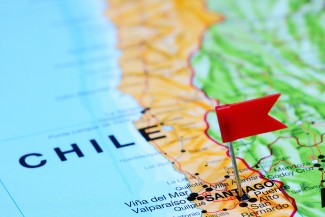Alcohol Policy in Chile

Chile has one of the highest rates of alcohol use per capita in the Americas. Policy to reduce alcohol-related harm is often up against resistance from alcohol industry, policymakers and the public.
This review, published in the Journal of Addiction, provides an analysis of enacted and proposed laws of national alcohol policies in Chile.
Information about proposed and enacted laws was gathered from Chilean National Library of Congress, Chamber of Deputies and Senate websites, research records and websites of WHO's alcohol policy time‐line database and the Global Information System on Alcohol and Health (GISAH), Chilean Ministry of Health, National Service for Prevention and Rehabilitation on Drugs and Alcohol Consumption (SENDA) and the Chilean Tax Administration.
In total, the researchers identified 229 enacted laws, 138 proposed laws and 1538 research record.
Some of the key findings include:
- The minimum legal age for purchasing alcohol was reduced from 21 to 18 years in 1993. Selling alcohol to minors is forbidden and sanctioned with jail time and a fine.
- In 2014, a law increased penalties against drunk drivers responsible for serious injury or fatal crashes.
- There were no policies on minimum pricing of alcoholic beverages, banning or restricting price promotions, discount sales or other types of volume sales, nor price incentives to non‐alcoholic beverages. There were also no policies to reduce or stop subsidies to alcohol producers.
- Until the 1990s, the focus regarding alcohol was on the treatment of alcohol use disorder. This was later expanded to include problem drinkers (from 1992 to 2005) and risky drinkers in 2005.
- Chile reports data on per capita alcohol consumption to WHO. However, no system is in place for regular reporting on alcohol consumption, morbidity and harm or to monitor the impact of policy interventions.
- There were few impact evaluations and all were focussed on drink‐driving policies.
The authors conclude that, although Chile has enacted alcohol policies in all WHO policy domains, there has been little evaluation of the impact of the laws.
In terms of future research the researchers suggest:
"Future research could explore the political forces shaping health policy in Chile, evaluate the implementation and impact of national alcohol policies on alcohol use and alcohol‐related harm and document efforts at subnational levels"